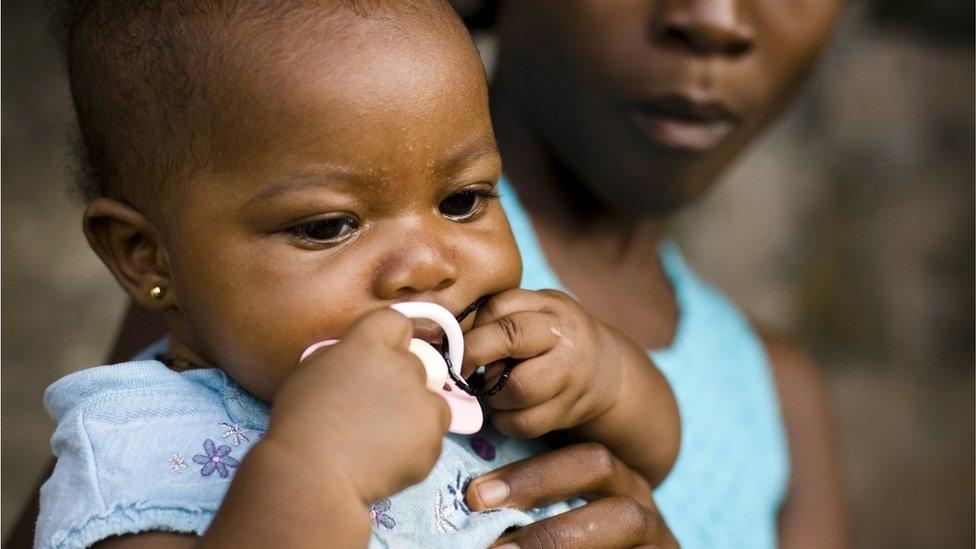Coronavirus: 'More support needed to keep babies out of care'
- Published
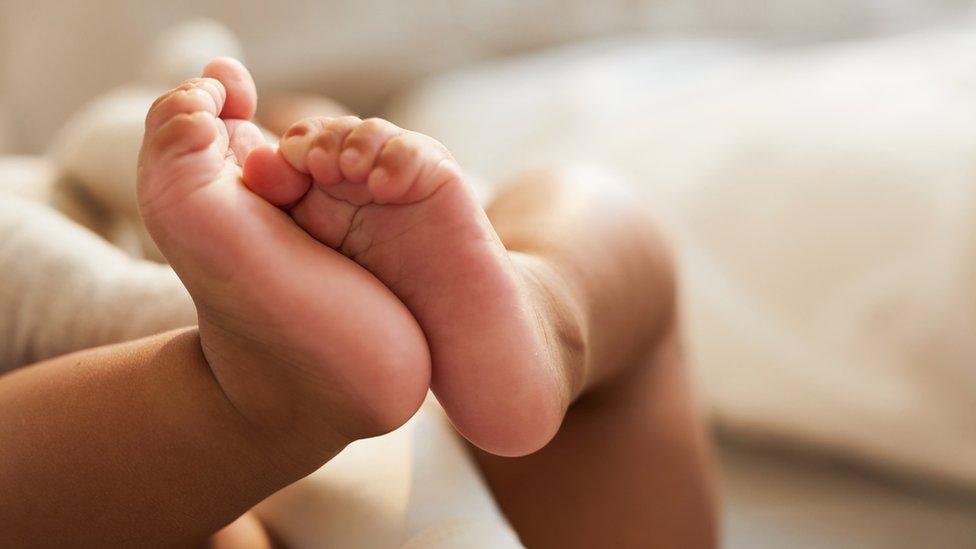
Calls have been made for a consistent early response from professionals
Research looking at hundreds of health records of women whose babies are taken into care at birth shows the majority had mental health problems.
It has prompted a call for more support in early stages of pregnancy so fewer babies are removed from their families.
And the expert leading the research said more babies could have been taken into care because of the challenges of providing support during the pandemic.
The Welsh Government said it aimed to cut the number of children in care.
Karen Broadhurst, from Lancaster University, leads the research with Swansea University linking family courts records with health records.
The four-year project, funded by the Nuffield Family Justice Observatory, looks at data from tens of thousands of anonymised records to see what can be done to improve outcomes in the future.
It has already discovered that, since 2015, there has been a spike in the number of babies coming into the care system, with a higher rate in Wales than England.
Per 10,000 people, the number of newborns coming into care proceedings in Wales has doubled, from 39 to 83.
The report - examining the health records of 1,111 mothers who had a child taken into care from birth - dispels a myth that women hide from services if they fall pregnant again.
Prof Broadhurst said during initial antenatal appointments more than half the women reported mental health conditions themselves.
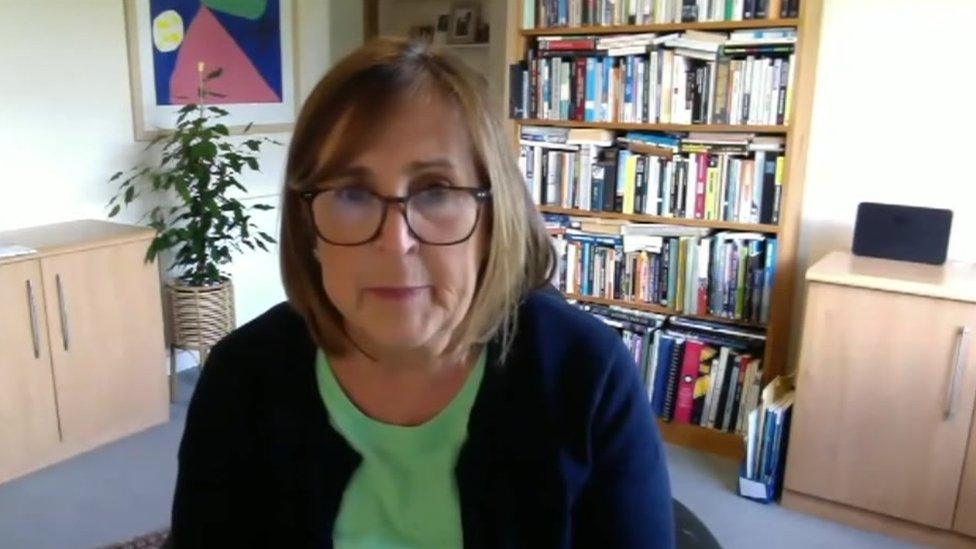
Karen Broadhurst says the challenges of supporting families during the coronavirus pandemic are "deeply concerning"
"When we've looked further back into women's health records a staggering 77% have a history of mental health," she said.
"This is a clear piece of evidence that says, put women's mental health at the heart of the work that we do in pregnancy.
"Mental health is something that's screaming out of this data."

What else has the research highlighted?
The study also found cases were concentrated in the most deprived areas of Wales
More than half became parents as teenagers
Rates of substance misuse and smoking were high
Prof Broadhurst said a consistent early response from professionals was now needed.
But she said the challenges of supporting families during the coronavirus pandemic were "deeply concerning".
While services have worked hard to keep going during the pandemic, she said it was now harder to keep a baby with their parents when they cannot access the usual support available, such as whether that was face-to-face drug and alcohol support, or when family members were shielding.
"Inevitably, if the families have a history of child removal, concerns are high, and we can't provide the intensive support, then we would expect to see more babies come into care at birth," she said.
"It's much harder for that parent to access legal support, to have that direct face-to-face contact with their own solicitor and to contest the case.
"It's not good news for families or for social workers."
Neath Port Talbot council social worker Dave Jones says, despite current restrictions, staff have been working hard to enable children to stay with their families.
"With social distancing guidelines, it makes visits more difficult - and confidentiality issues, especially when we have to meet on the front door, in a garden, or through a window," he said.
"Some services we refer on to are working on a much reduced face-to-face contact, but phone calls are not a substitute for face-to-face - there's a barrier and that's the same for us."

What help is available?
Prof Broadhurst praised the work currently being done by Barnardo's Cymru and Newport City Council on a joint project called Baby and Me.
They work with expectant parents from week 12 of pregnancy, right through until the baby is six months old.
Since it started nine months ago, the team has worked with 17 families.
Of the nine who have already given birth, seven have been able to keep their child - "a really successful outcome" according to Laura Bibey, a senior social worker on the project.
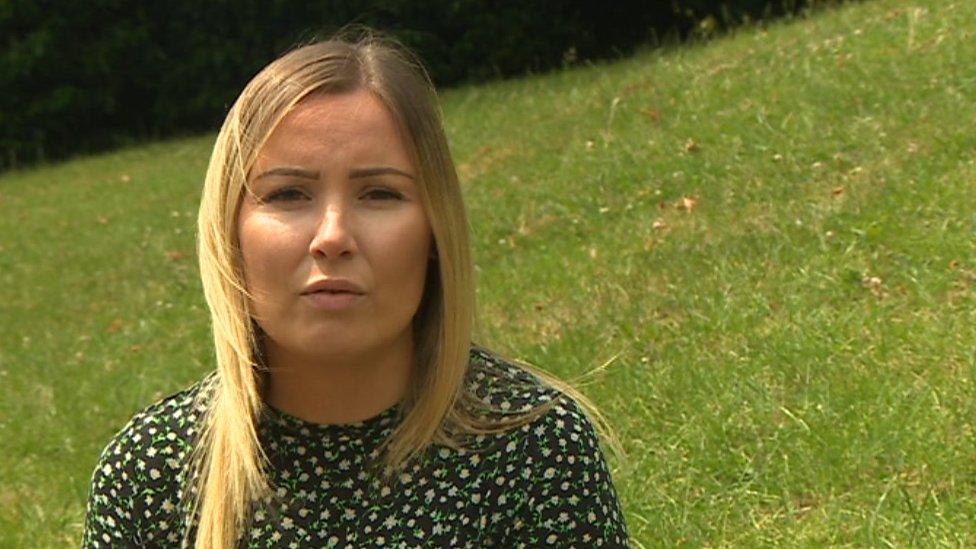
Project social worker Laura Bibey: "The removal of a child is just heartbreaking"
"If they hadn't worked with children's services and they hadn't made the changes needed, those babies would have most likely gone into foster care at birth," she said.
"We tend to experience two different types of parent coming through our services: those who have had a number of children removed previously, or young parents having their first baby and have had difficult experiences themselves and haven't necessarily had a blueprint for parenting from their family."
Ms Bibey added: "Any parent going through the court process and the removal of a child is just heartbreaking.
"We recognise that families don't always fit the service, and the service needs to fit around the family.
"A lot of the parents that we're working with have experienced a lot of trauma or adverse life experiences and they face a lot more barriers to be able to parent than other people do, but we can do whatever we can to try and help them."
The course includes information on recognising a baby's cues, understanding the stresses and strains of parenting, the impact on parents' relationships and even taking them to appointments if necessary.
Funded until 2021, Ms Bibey said it was hoped the project's successes will warrant further funding.
One mother's story
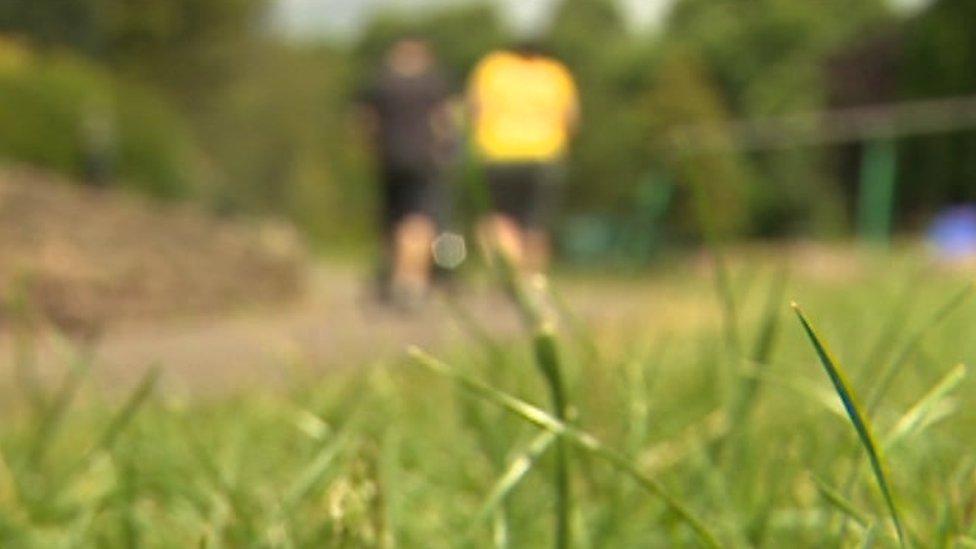
Natalie: "It's amazing having our baby home"
Natalie, not her real name, suffered with physical and mental health issues and had a breakdown after fleeing domestic violence.
She said she experienced a general lack of support and understanding, and felt judged for not having left the abusive relationship sooner.
When her children were taken into care, her mental health declined, making it even harder for her to do what was needed to get her children back.
She is now in a new, healthy relationship, but subsequent pregnancies resulted in the babies immediately being placed in care - something Prof Broadhurst said was common when older children have already been removed.
Things changed when Natalie was referred to the Baby and Me project.
"There's been more understanding and a lot more support," she said.
"It makes a big difference to your emotional well-being because you have hope."
The support from specialist professionals allowed them to think how both parents could be involved in parenting, which she said had made their relationship stronger.
"I'm usually doing it by myself when I have a child. But now we have that unit - that strength - together," she said.
"We would never have worked that out ourselves had we not had the support from Baby and Me."
A few weeks before her due date, they were given the news that they would be able to take their baby home.
"Life is full of messy nappies and baby sick, and I've been peed on more this week than you can imagine, but it's so worth it," she said of her newborn son.
"I didn't think I'd ever have one of my babies home. He wasn't planned," she said.
"Our last baby [who was removed at birth] was only 10 weeks old when I found out I was pregnant again and it was heart-breaking.
"I thought, 'I can't do this again' but it's amazing having our baby home and life is fantastic right now."
Her partner said he was able to look forward.
"It'll be great to do stuff that you see other parents do with their kids, instead of walking around, seeing people with their children and not being able to do it yourself," he said.
"It's been really exciting to do those things with the baby - be a normal family - watching your own child grow up and helping him reach stages in his life where he's going to need my help."
A Welsh Government spokesperson said: "We are investing in preventative solutions, providing vital support to women to ensure more children are able to remain at home with their birth family.
"Adding to our significant funding of mental health services, our Mental Health Delivery Plan 2019-2022, external includes implementing new, community-based perinatal services, providing support for mothers-to-be.
"We run a dedicated quit smoking service for pregnant women and have also provided £53m for substance misuse services across Wales.
"Delivering better outcomes can only be achieved by a whole system approach; working across health sectors and with local authorities, Cafcass Cymru, external and the family courts to deliver a cultural shift of improved early intervention and pre-birth support for mothers."
- Published21 May 2020
- Published15 June 2020
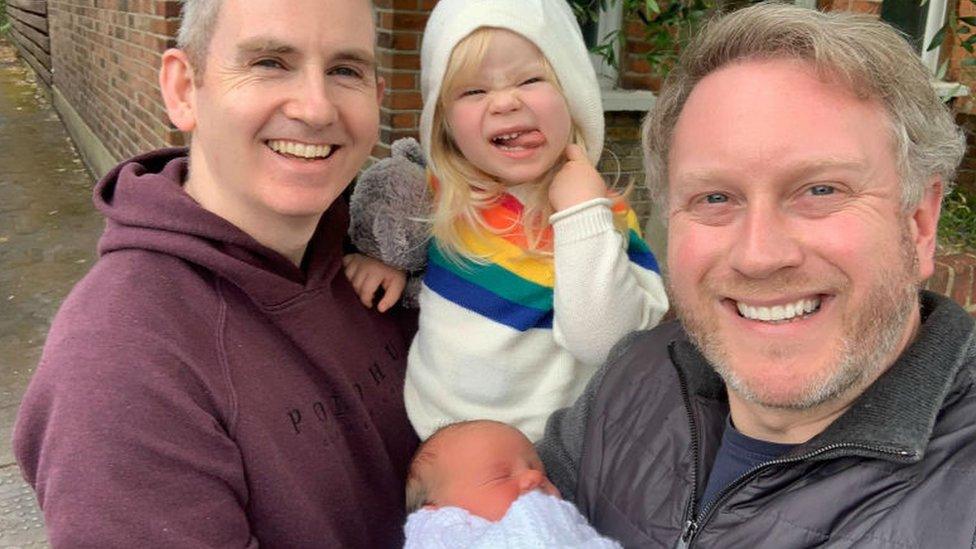
- Published15 October 2019
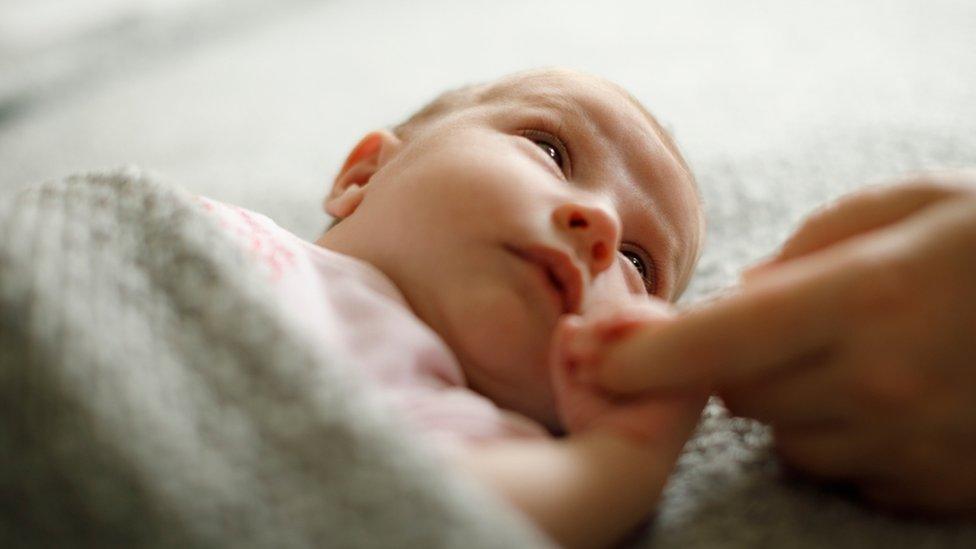
- Published30 August 2019
